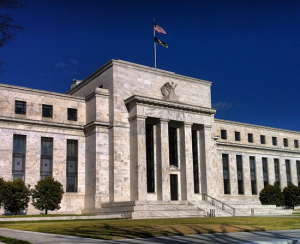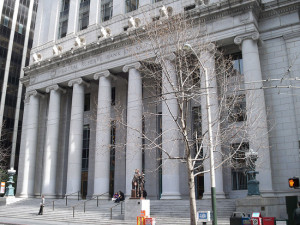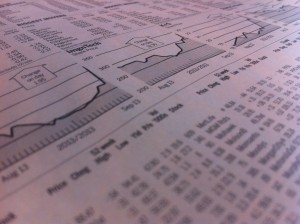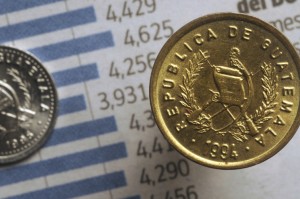We see that gold has appreciated at a composite rate of 3.33% for the time period in question. Fiat money saw a composite depreciation of 3.14%, which means that gold experienced a composite net return of 0.19% after inflation.
Click here to continue readingThe annualized quarterly GDP is growing, but it has been growing at a lower rate since the third quarter of 2015. Commercial and industrial credit is growing at a rate of an economy that is not expanding.
Click here to continue readingDuring the last seven years credit volumes did not grow as as in previous liquidity periods, despite having the federal reserve interest rates close to 0%. This means the US economy is not expanding.
Click here to continue readingToday, the central bank debate focuses on whether they should continue to use the inflation target as the main objective for monetary policies or if it should change to a nominal GDP target.
Click here to continue readingWhen talking about economic recovery, a distinction must be made between short-term and long-term effects. We’ll label as short-term effects those that last less than a year, and as mid and long term those that last more than a year. In practice, three to five years are needed to determine if effects are long lasting or not.
Click here to continue readingGreece’s delayed payment on its debt, its possible default, and an eventual exit from the euro have been some of the most widely covered news stories in the media over the last weeks. What would be the implications of a Greek default? What would be the implications of an eventual Greek exit from the euro?
Click here to continue readingCreditors of private and government debt generally perform credit analyses, first to grant a loan or purchase bonds, and then eventually to evaluate debt restructurings.
Click here to continue readingHistorically, the Guatemalan economy has had low volatility. For the past twenty years, the average growth rate has been 3.5%. [1] This level of volatility is generally lower than that of the other economies in the region. However, as the country suffers its worst political crisis since 1993, the question on everyone’s mind is, Will the political crisis affect the economy?
Click here to continue readingThe Guatemalan banking system, much like the country’s macroeconomic indicators, has been very stable the last few years. The bankruptcies that affected banks and financial intermediaries seem to have been forgotten. In recent history, bankruptcies by financial intermediaries are due to technical mismanagement, scams, or government corruption.
Click here to continue readingNegative Interest Rates and Exchange Rates: The United States and Europe, What Does the Future Hold?
The Federal Reserve, pursuing growth and unemployment objectives, will likely end the current federal funds policy close to zero at its next meeting. If the Federal Reserve increases the federal funds rate, following unemployment data and changes in last-minute credit, it would exacerbate the difference with the eurozone’s negative interest rates, and possibly, depreciate the euro against the dollar.
Click here to continue readingGet our free exclusive report on our unique methodology to predict recessions










